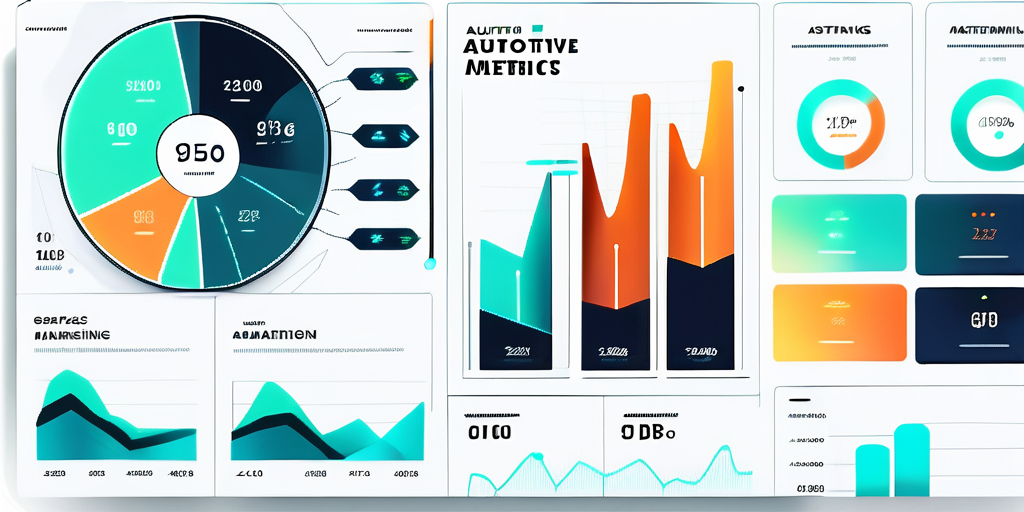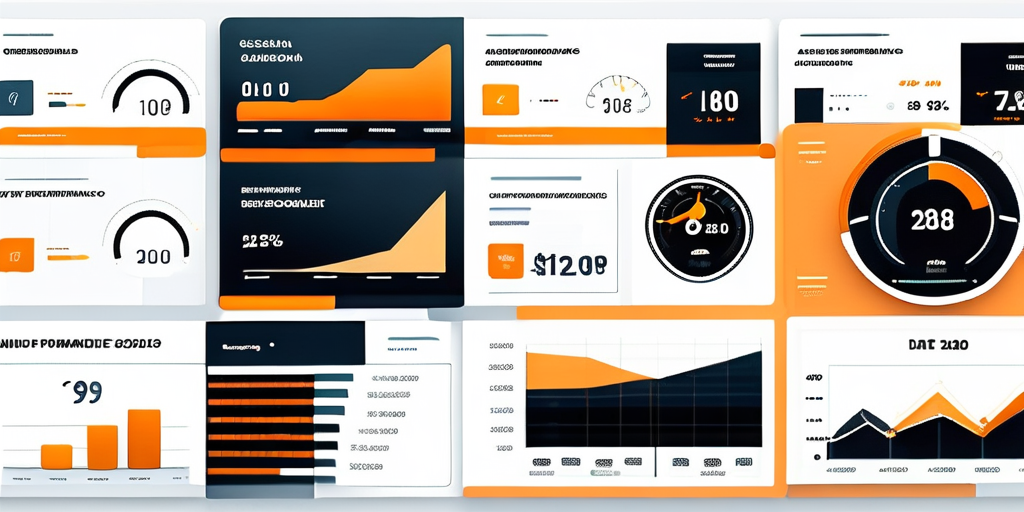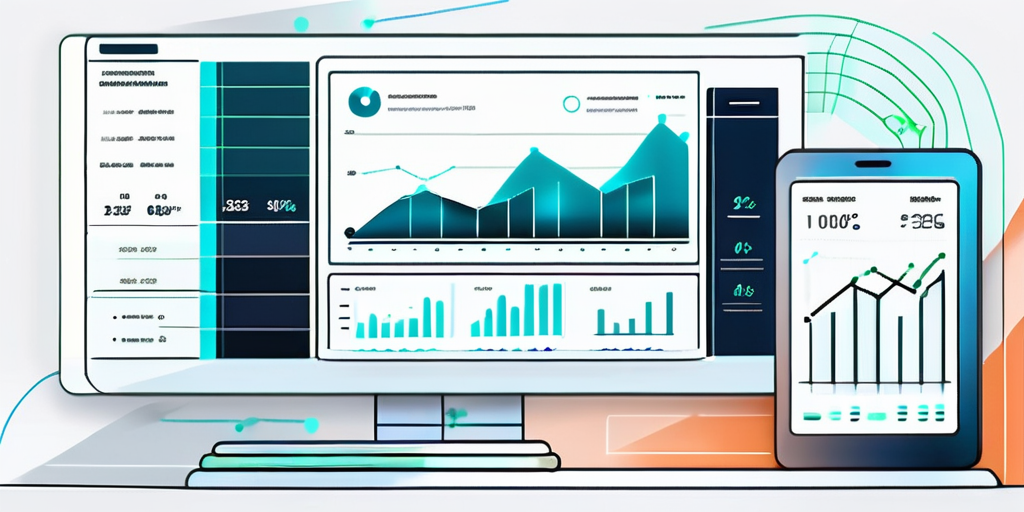The Ultimate Guide to Automotive Digital Marketing Reporting with Lead Tracking
In automotive marketing, staying ahead of the curve is crucial. With the rise of digital advertising and online consumer behavior, traditional marketing strategies no longer cut it. That’s where automotive digital marketing comes in. By harnessing the power of the internet, businesses can connect with their target audience in ways never before thought possible. This comprehensive guide aims to demystify the world of automotive digital marketing, focusing on the crucial aspects of reporting and lead tracking. Buckle up and let’s dive in!
Understanding Automotive Digital Marketing
In the hyper-competitive automotive industry, understanding the importance of digital marketing is paramount. Gone are the days when a simple billboard or radio ad would drive customers to your dealership. Today’s consumers are more tech-savvy than ever, relying on online resources to research, compare, and ultimately purchase their dream car. As an automotive marketer, embracing digital strategies is not optional but a necessity.

So, what makes automotive digital marketing so important? For starters, it allows you to reach a wider audience. With the ability to target specific demographics and interests, you can ensure that your advertisements are seen by the right people at the right time. Additionally, digital marketing opens the door to engage customers through various channels, such as social media, search engine optimization, and email marketing.
The Importance of Digital Marketing in the Automotive Industry
In the highly competitive automotive industry, digital marketing can give you a competitive edge. By leveraging online platforms, you can establish your brand, drive traffic to your website, and generate quality leads. Furthermore, digital marketing allows for real-time tracking and analysis of your marketing campaigns, enabling you to optimize your strategies for maximum impact.
Key Components of Automotive Digital Marketing
Effective automotive digital marketing encompasses a range of key components. First and foremost, a well-designed website is essential. Your website serves as the digital face of your automotive business, providing potential customers with information about your inventory, services, and unique selling points. Additionally, search engine optimization (SEO) ensures that your website ranks highly in search engine results, increasing visibility and driving organic traffic to your site.
Social media platforms such as Facebook, Instagram, and Twitter play a vital role in connecting with your target audience. By creating engaging content and interacting with users, you can build brand loyalty and communicate your dealership’s value proposition effectively.
PPC advertising, or pay-per-click, allows you to bid on specific keywords related to your business. This form of advertising ensures that your ads appear prominently in search engine results, driving relevant traffic to your website. Finally, email marketing remains a powerful tool for nurturing leads and maintaining relationships with existing customers.
But what about video marketing? In today’s digital landscape, video has become a dominant force in capturing consumers’ attention. By creating compelling and informative videos, you can showcase your vehicles, highlight their features, and provide virtual test drives. Video marketing not only engages potential customers but also helps build trust and credibility.
Another important aspect of automotive digital marketing is reputation management. Online reviews and ratings have a significant impact on consumers’ purchasing decisions. By actively managing your online reputation, responding to customer feedback, and addressing any concerns, you can build a positive brand image and establish trust with potential buyers.
In conclusion, automotive digital marketing is crucial in today’s highly competitive industry. It allows you to reach a wider audience, establish your brand, and generate quality leads. By utilizing various components such as a well-designed website, social media engagement, PPC advertising, video marketing, and reputation management, you can stay ahead of the competition and drive success for your automotive business.
The Role of Reporting in Automotive Digital Marketing
The saying, “What gets measured, gets managed,” holds true for automotive digital marketing. Without accurate and timely reporting, it’s impossible to gauge the effectiveness of your marketing efforts. Reporting allows you to understand which strategies are working and which ones need fine-tuning. In the fast-paced world of automotive marketing, making data-driven decisions is the key to success.

The Need for Accurate Reporting
Accuracy is at the core of effective reporting. By measuring key performance indicators (KPIs) such as website traffic, conversion rates, and customer engagement, you can gain invaluable insights into the effectiveness of your marketing campaigns. Accurate reporting allows you to identify areas of improvement and allocate resources effectively.
Metrics to Monitor in Automotive Digital Marketing
When it comes to automotive digital marketing, several metrics warrant close monitoring. Website traffic and bounce rate provide an overview of how effectively your website is attracting and retaining visitors. Additionally, tracking conversion rates, leads generated, and customer acquisition costs allows you to determine the return on investment (ROI) for your marketing efforts. It’s important to remember that not all metrics hold the same importance for every business. Understanding your specific goals and industry benchmarks will guide your reporting strategy.
Introduction to Lead Tracking
Leads are the lifeblood of any business, and the automotive industry is no exception. Lead tracking enables you to accurately monitor and analyze the journey of potential customers, from their initial interest to conversion. This comprehensive understanding of your leads empowers you to make data-driven decisions and optimize your marketing efforts for maximum lead generation.
What is Lead Tracking?
Lead tracking involves monitoring the various touchpoints and interactions your potential customers have with your business. This can include actions such as filling out a contact form, requesting a quote, or clicking on an advertisement. By capturing and analyzing this data, you can gain insights into the effectiveness of your marketing strategies and tailor your messaging to resonate with your target audience.
Benefits of Lead Tracking in Automotive Digital Marketing
Lead tracking yields numerous benefits for automotive marketers. Firstly, it allows you to identify the sources that generate the most leads, whether it be through social media campaigns, PPC advertising, or organic traffic. Armed with this information, you can allocate resources more effectively, focusing on the channels that yield the highest returns.
Furthermore, lead tracking provides a comprehensive picture of customer behavior. By understanding the touchpoints that lead to conversion, you can optimize your messaging and create highly targeted campaigns that resonate with potential buyers. Ultimately, lead tracking ensures that no lead falls through the cracks, maximizing your chances of closing deals.
Integrating Reporting and Lead Tracking
While reporting and lead tracking are powerful tools on their own, their true potential is unlocked when integrated seamlessly. By combining these two aspects of automotive digital marketing, you gain a holistic view of your marketing efforts, enabling data-driven decision-making and optimized strategies.

How to Effectively Combine Reporting and Lead Tracking
Start by aligning your reporting and lead tracking goals with your overall marketing strategy. Identify the specific metrics and key performance indicators (KPIs) that are most critical to your dealership. This could be the number of leads generated, the conversion rate, or the customer acquisition cost. By establishing clear objectives, you can measure the success of your marketing campaigns effectively.
Incorporate lead tracking tools into your reporting system to streamline data collection. This integration allows for real-time tracking, ensuring that no lead is missed, and data is consistently up to date. Additionally, visualize your data through charts, graphs, and other visual elements to enhance understanding and highlight trends.
Tools for Integrating Reporting and Lead Tracking
Thankfully, a plethora of tools exists to assist in integrating reporting and lead tracking seamlessly. Customer relationship management (CRM) systems such as Salesforce, HubSpot, and Zoho provide robust reporting capabilities while incorporating lead tracking functionalities.
Google Analytics and Google Tag Manager are invaluable tools for tracking website metrics, while marketing automation platforms like Marketo and Mailchimp provide insights into lead behavior and communication.
Optimizing Your Automotive Digital Marketing Strategy
Now that you have a solid understanding of automotive digital marketing reporting and lead tracking, it’s time to optimize your overall strategy. By following these tips, you can enhance your marketing efforts and measure their success effectively.
Tips for Enhancing Your Reporting and Lead Tracking
1. Define clear objectives and KPIs: Align your reporting and lead tracking goals with your overall marketing strategy to ensure data-driven decision-making.
2. Continuously monitor and analyze data: Regularly review your reports and track the progress of your leads. Identify patterns, trends, and areas of improvement.
3. Stay up to date with industry trends: The world of digital marketing is ever-evolving. Stay ahead of the curve by keeping an eye on the latest trends, strategies, and tools.
4. Test and iterate: Don’t be afraid to experiment with different marketing strategies. A/B testing can uncover what works best for your target audience.
Measuring the Success of Your Automotive Digital Marketing Strategy
Success in automotive digital marketing is not just about generating leads. It’s also about converting those leads into sales and ensuring a positive customer experience. By tracking metrics such as conversion rates, customer satisfaction scores, and customer lifetime value, you can measure the overall success of your marketing strategy.
Automotive digital marketing, with its reporting and lead tracking capabilities, has revolutionized the way businesses interact with their target audience. By harnessing the power of digital platforms, monitoring key metrics, and optimizing your strategies, you can navigate the ever-changing landscape of automotive marketing successfully. So fasten your seatbelt, buckle up, and embark on your journey to automotive marketing success!
As you navigate the road of automotive digital marketing, remember that the journey is best traveled with experts who share your passion for growth and success. At Woobound Marketing, we’re dedicated to bringing you the best marketing techniques and strategies, tailored specifically for the automotive industry. Our team is ready to work with you, whether you’re a small local dealership or a large auto organization. We’re here to help you harness the power of digital marketing, optimize your strategies, and drive the results you desire. Ready to shift gears? Let’s chat.





